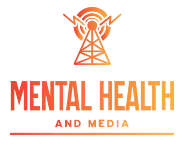In the complex and critical field of health industry procurement, the role of a procurement manager demands a unique set of skills and qualities. Beyond traditional procurement expertise, success in this role often hinges on specific abilities tailored to the healthcare landscape. Read More
In healthcare procurement, building robust relationships with suppliers is akin to forging partnerships that directly impact patient care. Just as a recruitment agency seeks out the best talent for organizations, procurement managers in healthcare must diligently seek suppliers who offer not only high-quality products but also a commitment to reliability and responsiveness. These partnerships are critical to maintaining a steady supply of essential medical supplies and equipment, ensuring continuity in patient treatments and operational efficiency during both routine operations and emergencies. Effective supplier relationship management by procurement managers not only secures timely access to vital resources but also fosters collaboration that enhances healthcare delivery outcomes. Healthcare procurement managers must navigate a labyrinth of regulatory requirements. Mastery of regulations such as HIPAA, FDA guidelines, and other industry-specific standards is crucial. Understanding these regulations ensures that all procurement activities meet legal and ethical standards, safeguarding patient privacy and safety. Strategic sourcing goes beyond cost reduction; it involves identifying suppliers who align with the healthcare organization’s mission and values. Procurement managers should be adept at evaluating supplier capabilities, negotiating contracts, and mitigating risks associated with supplier relationships. In healthcare, procurement decisions can directly impact patient outcomes. Procurement managers must assess and mitigate risks associated with product quality, supplier reliability, and supply chain disruptions. Proactive risk management minimizes disruptions to patient care and operational continuity. Analyzing procurement data is crucial for identifying cost-saving opportunities, monitoring supplier performance, and predicting future demand. Procurement managers should leverage analytics to optimize inventory levels, reduce waste, and enhance overall procurement efficiency. Managing contracts effectively ensures that procurement activities align with budgetary constraints and organizational goals. Procurement managers should possess strong contract negotiation skills, attention to detail in contract drafting, and the ability to enforce contract terms to safeguard organizational interests. Healthcare procurement managers handle sensitive information and make decisions that impact patient care. Upholding ethical standards in supplier selection, procurement practices, and decision-making processes is non-negotiable. Ethical integrity builds trust among stakeholders and maintains organizational credibility. Clear and concise communication is essential for coordinating procurement activities across departments, collaborating with suppliers, and addressing issues promptly. Procurement managers should excel in both verbal and written communication to foster transparency and alignment within the organization. The healthcare landscape is dynamic, with evolving patient needs and regulatory changes. Procurement managers must cultivate supply chain agility to adapt quickly to market fluctuations, new technologies, and unforeseen disruptions. Agility ensures continuous access to critical supplies and services. Successful procurement managers are committed to ongoing professional development and process improvement. Embracing innovation, staying informed about industry trends, and seeking feedback from stakeholders is key to refining procurement strategies and achieving sustainable success. In conclusion, mastering these ten skills and qualities can empower procurement managers to excel in the demanding field of healthcare procurement. By prioritizing regulatory compliance, fostering strong supplier relationships, and leveraging data-driven insights, procurement managers contribute to the overall efficiency and reliability of healthcare supply chains. Ethical integrity, effective communication, and a commitment to continuous improvement further enhances their ability to navigate challenges and drive positive outcomes for healthcare organizations. As the healthcare industry continues to evolve, the role of procurement managers remains pivotal in ensuring quality patient care through strategic procurement practices.
Supplier Relationship Management
Regulatory Compliance Expertise
Strategic Sourcing Skills
Risk Management Acumen
Data-Driven Decision Making
Contract Management Skills
Ethical Integrity
Effective Communication
Supply Chain Agility
Continuous Improvement Mindset
Sum Up




